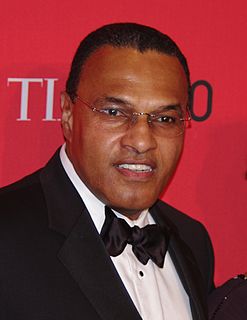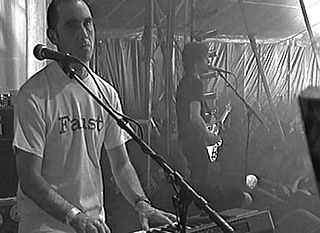A Quote by Kevin Maney
Artificial intelligence uses a complex set of rules - algorithms - to get to a conclusion. A computer has to calculate its way through all those rules, and that takes a lot of processing. So AI works best when a small computer is using it on a small problem - your car's anti-lock brakes are based on AI. Or you need to use a giant computer on a big problem - like IBM using a room-size machine to compete against humans on Jeopardy in 2011.
Quote Topics
Against
AI
Algorithms
Anti
Artificial
Artificial Intelligence
Based
Best
Big
Big Problem
Brakes
Calculate
Car
Compete
Complex
Computer
Conclusion
Get
Giant
Humans
Ibm
Intelligence
Jeopardy
Like
Lock
Lot
Machine
Need
Problem
Processing
Room
Rules
Set
Size
Small
Takes
Those
Through
Use
Uses
Using
Way
Works
Your
Related Quotes
Artificial intelligence is based on the assumption that the mind can be described as some kind of formal system manipulating symbols that stand for things in the world. Thus it doesn't matter what the brain is made of, or what it uses for tokens in the great game of thinking. Using an equivalent set of tokens and rules, we can do thinking with a digital computer, just as we can play chess using cups, salt and pepper shakers, knives, forks, and spoons. Using the right software, one system (the mind) can be mapped onto the other (the computer).
If you've never programmed a computer, you should. There's nothing like it in the whole world. When you program a computer, it does exactly what you tell it to do. It's like designing a machine — any machine, like a car, like a faucet, like a gas-hinge for a door — using math and instructions. It's awesome in the truest sense: it can fill you with awe.
When I use a direct manipulation system whether for text editing, drawing pictures, or creating and playing games I do think of myself not as using a computer but as doing the particular task. The computer is, in effect, invisible. The point cannot be overstressed: make the computer system invisible.
I've always been interested in technology, but specifically how we can use machines to engage the imagination. I started using computers when I was young and was fascinated by creating rules and instructions that allow a computer to engage in a dialogue with humans. The stories found in the data all around us can do just that.
What is the central core of the subject [computer science]? What is it that distinguishes it from the separate subjects with which it is related? What is the linking thread which gathers these disparate branches into a single discipline. My answer to these questions is simple -it is the art of programming a computer. It is the art of designing efficient and elegant methods of getting a computer to solve problems, theoretical or practical, small or large, simple or complex. It is the art of translating this design into an effective and accurate computer program.
I've never been much of a computer guy at least in terms of playing with computers. Actually until I was about 11 I didn't use a computer for preparing for games at all. I was playing a bit online, was using the chess club mainly. Now, obviously, the computer is an important tool for me preparing for my games.
I do take a computer to do some processing live and I might use a couple of plug-in synthesisers, 'cause obviously you can take quite a lot of power in terms of sound generation on a computer that I can trigger from a couple of keyboards. And it means I don't have to take some of my vintage stuff and have it trashed by various airlines which has happened in the past. But I still take some vintage stuff with me, I'll take that risk because I like using all that stuff.
































